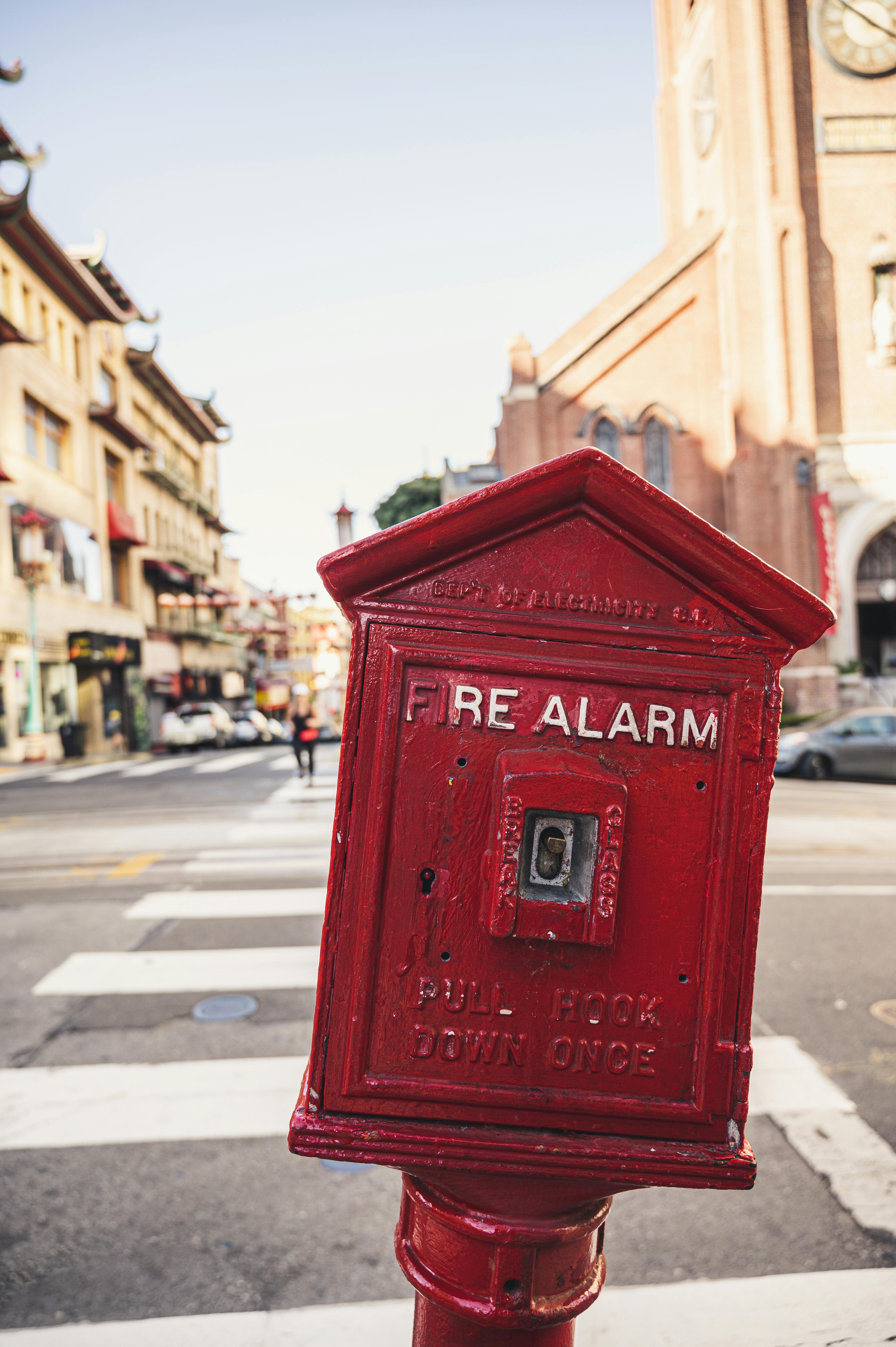Travel Emergency Plans: What to Do When Things Go Wrong
Welcome to the world of unexpected adventures and unforgettable experiences! Traveling is a wonderful way to explore new cultures, meet interesting people, and create lifelong memories. However, sometimes things don’t go as planned, and it’s crucial to be prepared for any travel emergencies that may arise.
Expect the Unexpected
When embarking on a journey, it’s important to acknowledge that unforeseen circumstances can occur at any time. From flight cancellations to lost luggage or even unexpected injuries, having a comprehensive travel emergency plan can make all the difference in how well you navigate these challenges.
Stay Calm and Composed
In times of travel emergencies, staying calm and composed is key. Panicking or getting overwhelmed will only hinder your ability to think clearly and find a swift solution. Remember, with the right mindset and preparation, you can overcome any hurdle that comes your way.
Have a Reliable Backup Plan
One of the first steps in creating a travel emergency plan is to have a reliable backup plan. This includes sharing your itinerary and important contact information with a trusted friend or family member. In case of any unexpected events, they can act as your support system, providing guidance and assistance when needed.
Know Your Insurance Coverage
Another crucial aspect of your travel emergency plan is understanding your insurance coverage. Familiarize yourself with the terms and conditions of your travel insurance policy, ensuring that it covers a wide range of emergencies such as trip cancellations, medical emergencies, or lost belongings.
Research Local Emergency Services
Before embarking on your journey, take the time to research the local emergency services in your destination. Be aware of the local emergency numbers, embassy contact details, and nearby medical facilities. This knowledge will prove invaluable if you find yourself in need of immediate assistance.
Pack a Well-Stocked First Aid Kit
A well-stocked first aid kit is a travel essential. Include bandages, antiseptic wipes, pain relievers, and any necessary prescription medications. Having these items readily available can help alleviate minor injuries or illnesses without the need for immediate medical attention.
Conclusion
In conclusion, travel emergencies can happen to anyone, regardless of how meticulously you plan your trip. By being prepared and having a comprehensive travel emergency plan in place, you can minimize the stress and navigate through any unforeseen situations that may arise. So, embark on your next adventure with confidence, knowing that you’re equipped to handle the unexpected. Safe travels!

What Should You Do When Things Go Wrong? A Comprehensive Guide to Travel Emergency Plans
When it comes to traveling, unexpected situations can arise that throw you off course and cause distress. This is why having a well-thought-out travel emergency plan in place is essential. But what does it really mean?
In simple terms, travel emergency plans refer to premeditated strategies and actions that you can follow when faced with unforeseen circumstances during your trip. These plans encompass a wide range of situations, such as lost passports, medical emergencies, natural disasters, or even political unrest.
Having a travel emergency plan offers numerous advantages. Firstly, it gives you a sense of security and peace of mind, knowing that you are well-prepared to tackle any unplanned events. Additionally, it ensures that you can respond promptly and effectively to emergencies, minimizing potential risks and damages.
Now that we have covered the basics, let’s dive deeper into what a reliable travel emergency plan should entail. We will explore specific measures and precautions you can take to safeguard yourself and your fellow travelers. From packing essential documents and contact details to familiarizing yourself with local emergency services, we will leave no stone unturned.
In the following sections, we will delve into each aspect of travel emergency plans, offering comprehensive guidance and actionable steps to ensure your safety and well-being. So, keep reading to equip yourself with the knowledge and skills necessary to handle any unexpected situation that may arise during your travels.

Travel Emergency Plans: What to Do When Things Go Wrong
Traveling to new and exciting destinations is undoubtedly an incredible experience, but it’s essential to recognize that unforeseen emergencies can occur during our journeys. Being prepared for such situations can make a significant difference in ensuring our safety and peace of mind. In this article, we will explore some essential travel emergency plans that will help you know what to do when things go wrong.
Medical Emergencies
Medical emergencies can happen anytime, anywhere. While we hope to avoid them, it’s crucial to be prepared for potential health issues during your travels. Here are some steps to follow:
- Research and note down the contact details of local hospitals, clinics, and emergency services at your destination.
- Pack a well-stocked first aid kit with essential supplies, including medications specific to your needs.
- Ensure you have a comprehensive travel health insurance plan that covers medical emergencies abroad.
- Carry a list of any known allergies, medical conditions, or medications you are taking to provide accurate information in case of an emergency.
Lost or Stolen Documents
It can be quite distressing to lose important travel documents, such as your passport or identification cards, while abroad. Here’s what you can do if you find yourself in this situation:
- Make several photocopies of your passport, visas, driver’s license, and other essential documents before traveling. Keep these copies in a separate place from the originals.
- Contact the nearest embassy or consulate of your home country for assistance in replacing lost or stolen documents.
- File a police report immediately and obtain a copy, as it may be required by your embassy or for insurance purposes.
- In the meantime, reach out to the local authorities and provide them with all the necessary information about the incident.
Natural Disasters or Political Unrest
When traveling to different parts of the world, it’s crucial to stay informed about potential natural disasters, political unrest, or civil disturbances that may occur. Follow these guidelines:
- Monitor local news and sign up for emergency alerts provided by official channels or local authorities.
- Have a plan in place for evacuations, such as knowing the nearest evacuation routes and designated safe areas.
- Keep in touch with your country’s embassy or consulate for real-time updates and guidance during emergencies.
- Inform your family or friends about your travel plans, including your itineraries and contact information, so they can stay updated and contact you if necessary.
Statistical Insight
A report by the Travel Insurance Association indicates that nearly 30% of travelers experience some form of emergency during their trips. Being well-prepared and informed about travel emergency plans significantly reduces the likelihood of adverse consequences and helps ensure a smoother travel experience.
Remember, emergencies can be stressful, but having a plan in place gives you confidence and allows you to handle unexpected situations efficiently. Prioritize your safety and well-being by being prepared for travel emergencies, making your journey a truly enjoyable and worry-free experience.

Conclusion
In conclusion, when it comes to travel emergency plans, it is crucial to be prepared and proactive. By following the key points discussed in this article, you can minimize the impact of unforeseen circumstances and ensure a safer and smoother travel experience.
Firstly, having a comprehensive travel insurance policy is essential. It provides financial protection in case of emergencies such as medical emergencies, trip cancellations, or lost baggage. Make sure to carefully review the policy coverage and understand the terms and conditions before purchasing.
Secondly, familiarize yourself with the emergency contact numbers and local authorities at your travel destination. Keep these numbers handy and inform a trusted person back home about your itinerary and emergency contacts.
Additionally, it is important to create a customized emergency kit tailored to your specific needs. This kit should include essential items such as medication, a first aid kit, a flashlight, extra cash, and important documents like passports and travel itineraries.
Furthermore, maintaining situational awareness during your travels is crucial. Stay informed about the local customs, laws, and potential risks of your destination. Regularly check travel advisories and be cautious of your surroundings, especially in unfamiliar areas.
Lastly, always have a backup plan. This includes having copies of important documents stored electronically, carrying extra means of payment, and researching alternative transportation options in case of delays or cancellations.
By implementing these measures and being prepared, you can confidently handle travel emergencies, ensuring a safer and more enjoyable journey. Remember, it is always better to be safe than sorry when it comes to travel. Bon voyage!




